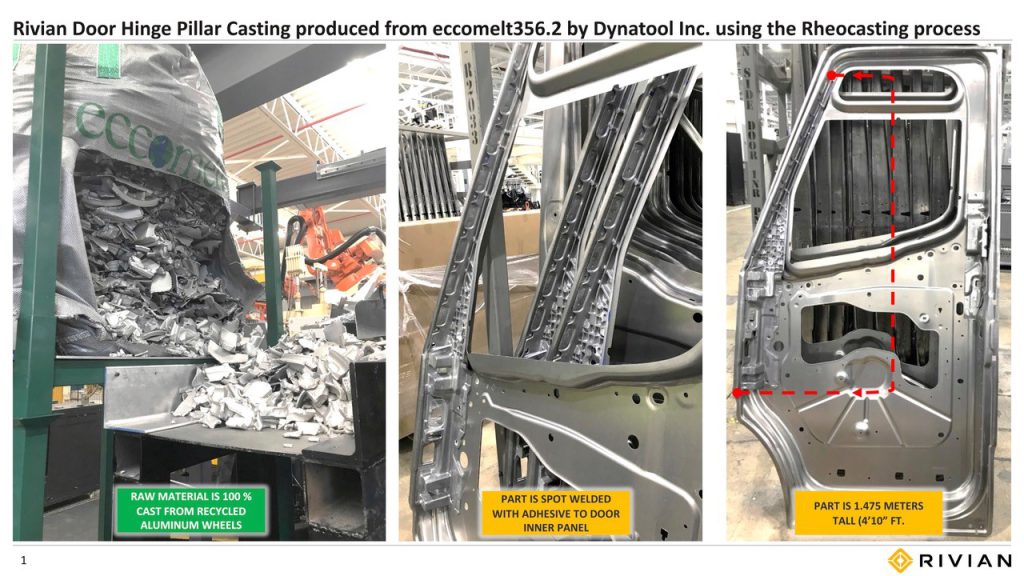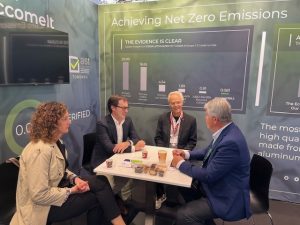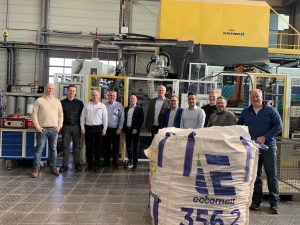Eccomelt is proud to contribute to the success of our customer, Dynatool Inc. of Montreal, QC, Canada, in making an exceptional structural casting with the lowest carbon footprint for the Rivian electric delivery van door, as seen on the Amazon van pictured above. The casting is made with the Comptech-Rheocasting process on a conventional high pressure die casting machine. The ultra-low carbon footprint of eccomelt356.2 (only 0.089 t CO2e / t Al EXW Toronto and 0.139 t CO2e/t Al delivered to Dynatool in Montreal, compared to over 4 t CO2e/t Al from low carbon primary alloys and well over 1t CO2e/t Al for comparable secondary alloy ingots) enabled this casting to be likely the lowest carbon footprint structural casting on the market, especially as almost no other additions (only very minor adjustments of Mg, Sr, and TiB2) were necessary. The shape of eccomelt356.2 and its large surface area to weight ratio create a higher melt rate compared to ingots, which enabled Dynatool to reduce melting time, thereby increasing productivity along with further lowering emissions. All these are additional factors that helped Dynatool reduce the carbon footprint of both their product and process. The total carbon footprint of the casting in T6 was just 1.1 t CO2e/t Al, and the switch to T5 would have likely brought this down to below 1 t CO2e/t Al. Even in T5, the mechanical properties are very impressive, with typically around 170MPa yield strength, 250 MPa ultimate tensile strength and 10 % elongation (with very low standard deviation). This is an extremely impressive achievement with 100% recycled aluminum. It would even be impressive with pure primary aluminum, but now Rivian has the best of both worlds: highest quality with likely the lowest carbon footprint, and it is no surprise that it won the Casting of the Year Award from NADCA.

The casting has a length of 1.475 m (4’10”) and wall thicknesses vary from almost an inch to about 2 mm.
Photos courtesy of Rivian




